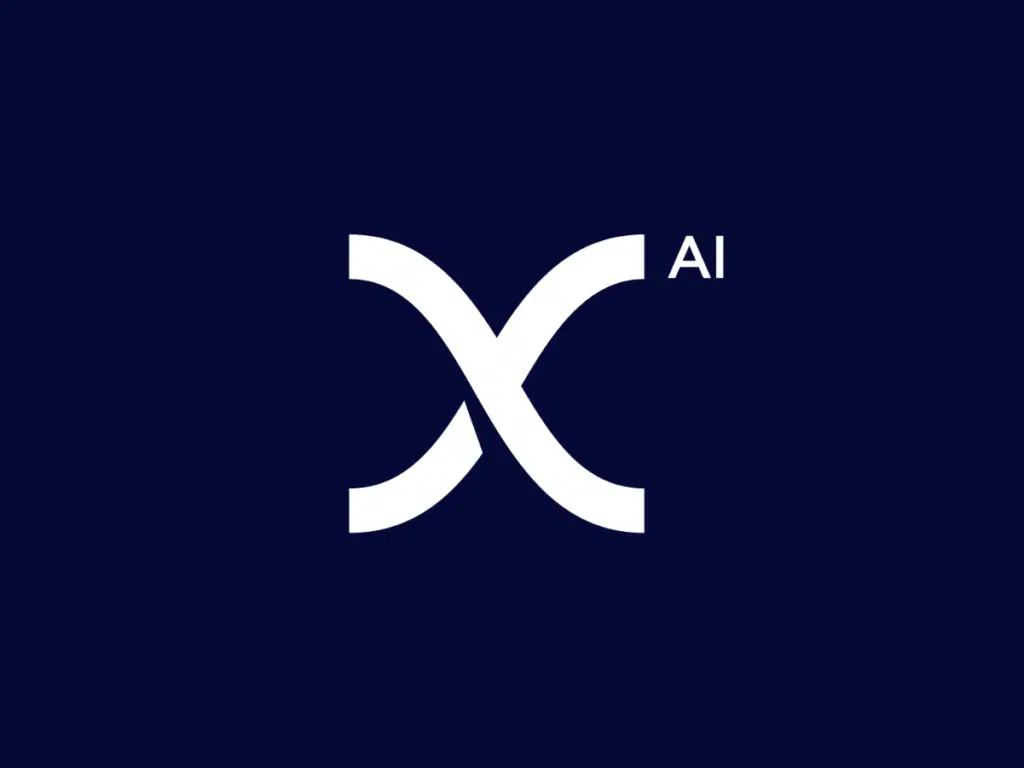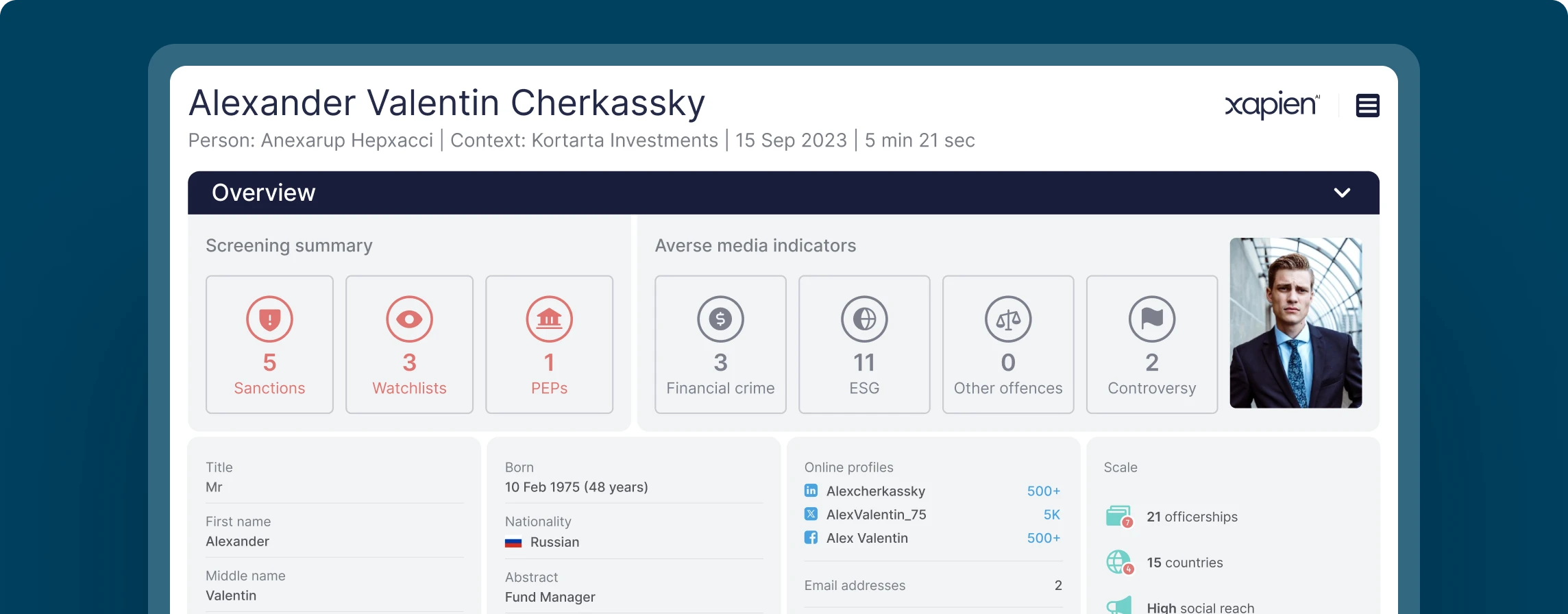
Xapien Legal Intelligence Platform: Complete Buyer's Guide
AI-native due diligence solution for legal sector AML screening
Xapien Legal Intelligence Platform represents a specialized AI-native due diligence solution engineered specifically for legal sector anti-money laundering (AML) screening challenges. The platform distinguishes itself through comprehensive data integration spanning 0.5 billion corporate records, 1,500 watchlists, 140 jurisdictions, and 35 trillion web pages processed in real-time[52][55].
Market Position & Maturity
Market Standing
Xapien occupies a specialized market position as an AI-native due diligence solution targeting legal sector AML screening, differentiating from comprehensive enterprise platforms through focused expertise and rapid deployment capabilities[46][48].
Company Maturity
Company maturity indicators include ISO 27001:2022 certification and UK GDPR compliance, addressing enterprise security requirements without premium pricing structures[51].
Growth Trajectory
Growth trajectory evidence includes expanding customer base across multiple sectors and ongoing platform development through collaborative partnerships, though specific funding status, revenue metrics, or customer growth indicators are not publicly disclosed in available research.
Industry Recognition
Industry recognition emerges through customer implementations across legal, financial services, and educational sectors, with documented operational improvements at Griffin, University of Michigan, and Dartmouth[47][53][54].
Strategic Partnerships
The vendor's strategic partnerships, particularly the documented collaboration with Pinsent Masons, demonstrate practical legal sector validation and co-development approach rather than traditional vendor-customer relationships[46][48].
Longevity Assessment
Long-term viability assessment shows positive indicators through customer retention, ongoing development partnerships, and expanding sector presence, though organizations should evaluate vendor dependency risks given the specialized market focus and limited competitive benchmarking data available for independent verification.
Proof of Capabilities
Customer Evidence
Documented customer implementations provide measurable evidence of platform effectiveness across multiple sectors. Pinsent Masons partnership represents the most comprehensive legal sector validation, demonstrating practical AML compliance implementation with documented time savings from weeks to hours for appropriate client segments and resource reallocation from routine screening to strategic analysis[46][48].
Quantified Outcomes
Quantified performance outcomes include vendor-reported 65% reduction in client onboarding time and 58% decrease in annual hours spent analyzing AML risk[52], though these metrics require independent verification for procurement decisions.
Case Study Analysis
Griffin's operational transformation shows compliance-business development relationship improvement, with MLRO teams conducting assessments at conversation initiation rather than process completion, fundamentally changing how sales teams view compliance from blocking to enabling strategic business development[47].
Market Validation
Market validation indicators include customer success team engagement with claimed one-hour response times to analyst support requests and comprehensive training programs included without additional fees[54][50][51].
Competitive Wins
Competitive wins evidence emerges through customer selection of Xapien over traditional manual processes and basic automation tools, though specific competitive displacement data against enterprise AML platforms is not available in research sources.
Reference Customers
Reference customer diversity spans legal firms, financial services, and educational institutions, demonstrating platform adaptability across different organizational requirements and use cases while maintaining consistent operational benefits and user satisfaction.
AI Technology
Xapien's AI-native architecture operates through contextual analysis combining multiple data sources into comprehensive risk assessments, distinguishing itself from legacy providers that layer AI onto existing rule-based systems[41]. The platform processes unstructured web content alongside traditional sanctions and corporate databases, utilizing generative AI integration with automated report summarization and risk assessment capabilities specifically designed for due diligence reliability[51].
Architecture
Browser-based deployment architecture eliminates traditional technical integration barriers, requiring only URL and password access rather than complex system integration or API development[50][51].
Primary Competitors
Primary competitors include comprehensive enterprise platforms like SAS and Oracle providing superior technical capabilities but requiring extensive implementation resources[16][13], and AI-native specialists like Flagright and Silent Eight offering advanced performance metrics but lacking legal sector specialization[17][1].
Competitive Advantages
Competitive advantages center on legal sector specialization through co-development partnerships like Pinsent Masons, rapid deployment via browser-based architecture eliminating implementation complexity, and zero-implementation cost structure contrasting with enterprise solutions requiring months of deployment and substantial technical resources[46][48][50][51].
Market Positioning
Market positioning places Xapien as a specialized solution targeting legal sector due diligence rather than comprehensive AML platform competing with enterprise providers. The platform's strength lies in niche expertise and rapid deployment rather than broad functionality or market leadership, creating advantages for specific use cases while limiting comprehensive AML program capabilities.
Win/Loss Scenarios
Win scenarios favor legal firms prioritizing rapid deployment, legal sector focus, and minimal technical complexity over comprehensive transaction monitoring or advanced behavioral analytics. Loss scenarios occur when organizations require extensive system integration, comprehensive regulatory reporting, or pure AI performance metrics where specialized providers may offer superior capabilities.
Key Features

Pros & Cons
Use Cases
Featured In Articles
Comprehensive analysis of AI Anti-Money Laundering (AML) Screening for Legal/Law Firm AI Tools for Legal/Law Firm AI Tools professionals. Expert evaluation of features, pricing, and implementation.
How We Researched This Guide
About This Guide: This comprehensive analysis is based on extensive competitive intelligence and real-world implementation data from leading AI vendors. StayModern updates this guide quarterly to reflect market developments and vendor performance changes.
59+ verified sources per analysis including official documentation, customer reviews, analyst reports, and industry publications.
- • Vendor documentation & whitepapers
- • Customer testimonials & case studies
- • Third-party analyst assessments
- • Industry benchmarking reports
Standardized assessment framework across 8 key dimensions for objective comparison.
- • Technology capabilities & architecture
- • Market position & customer evidence
- • Implementation experience & support
- • Pricing value & competitive position
Research is refreshed every 90 days to capture market changes and new vendor capabilities.
- • New product releases & features
- • Market positioning changes
- • Customer feedback integration
- • Competitive landscape shifts
Every claim is source-linked with direct citations to original materials for verification.
- • Clickable citation links
- • Original source attribution
- • Date stamps for currency
- • Quality score validation
Analysis follows systematic research protocols with consistent evaluation frameworks.
- • Standardized assessment criteria
- • Multi-source verification process
- • Consistent evaluation methodology
- • Quality assurance protocols
Buyer-focused analysis with transparent methodology and factual accuracy commitment.
- • Objective comparative analysis
- • Transparent research methodology
- • Factual accuracy commitment
- • Continuous quality improvement
Quality Commitment: If you find any inaccuracies in our analysis on this page, please contact us at research@staymodern.ai. We're committed to maintaining the highest standards of research integrity and will investigate and correct any issues promptly.